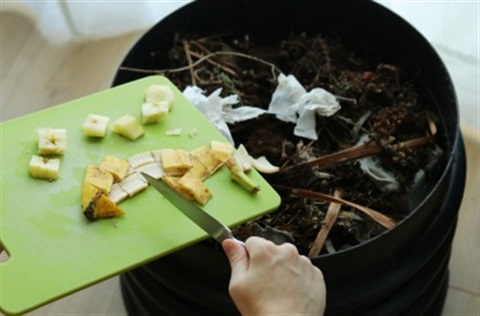Food Waste, Worm Farms and Composting

Fighting Food Waste
As much as we love our food, when we cook too much, buy too much or leave it in the fridge for too long it gets wasted. It may seem like we only throw out small amounts every now and again, but it all adds up.
Did you know that in NSW, more than a third of the waste in household garbage bins is food? This waste is sent to landfill where it generates methane—a greenhouse gas that’s 25 times more powerful than carbon dioxide and is a big contributor to climate change.
In Lane Cove, recent audits of kerbside bins found that the average household throws away 3.55kg of food per week. That’s over 3,500 tonnes per year.
Food sent to landfill also releases nutrients that can filter through the soil and into waterways, polluting our natural environment for generations to come. When we throw away food, we’ve also wasted all of the resources like water and energy that went into growing, packaging, producing, transporting, selling and preparing your food.
The good news is that we can all be part of the solution, by making simple changes at home and work to reduce the amount of edible food we throw away.
Council is working towards introducing a food organics collection service in the next 12 months to help keep food waste out of landfill. Another great option is to stop food waste at its source.
For more information or to ask questions, please contact service@lanecove.nsw.gov.au.
Top Tips for Reducing Food Waste
- Plan Ahead
- Consider the week ahead and what you’d like to eat.
- Check what ingredients you already have in the fridge or pantry.
- Consider which ingredients can be used in more than one meal, especially ingredients that won’t last for extended periods.
- Shop to a list and avoid impulse buys.
2. Store it like a Boss
- Airtight containers are perfect for storing food items. Try to use containers sized to whatever you’re storing to reduce the oxygen in the container.
- Paper towels are a must for fruits and vegetables that sweat moisture and can deteriorate quickly once they start perspiring (think mushrooms, berries and cucumbers etc.). Placing one or two paper towels on the top and/or bottom of an airtight container can help keep these items fresher for longer.
- Move the oldest items to the front of your fridge and pantry so that you can see what needs to be used as a priority.
- Make sure the temperature of your fridge is between 3 and 4 degrees Celsius and check the door seals are working.
3. Know your Labels
- The ‘use by’ date tells us when food is safe to eat. Foods should not be eaten after the use-by date.
- The 'best before' date is used to indicate quality rather than safety. Depending on how food has been stored and whether it has been opened, it’s generally okay to eat most food past its best-before date. For more info visit Use-by and best-before dates | Food Standards Australia New Zealand.
4. Love your Leftovers
- Leftovers make great lunches for work or school. A good thermos will keep food warm for a hot lunch.
- Consider freezing extra portions that can be reheated for an easy meal when time is short.
- Turn your leftovers into something different altogether. Leftover veggies can the used in a frittata or added to cous cous, and left over lamb can be used for a ragu. Get creative!
- Get free leftover ideas from your local library - e.g. search for 'low waste living', 'low waste kitchen'.
5. Minimise Plate Waste
- Let others serve themselves to avoid plated food waste. That way everyone serves the amount and types of food they are comfortable eating.
Hard to Avoid Waste
Some food waste is unavoidable. Things like bones, shells, teabags, coffee grinds, eggshells, fruit and vegetable peels. These wastes are best composted or processed into valuable resources than sent to landfill. When food scraps are composted or recycled through commercial processing systems, the compost can be returned to land where it improves soil health, increases the ability of soil to retain moisture, and supports healthy plant growth.
Council has a number of programs to support our community to compost. These include discounted compost bins and worm farms through our Compost Revolution program. Or join our Compost Network, which connects people who want to recycle their food scraps with local hosts who accept these food scraps for composting.
Council is also exploring options to roll out a food organics collection service to help keep food waste out of landfill. For more information, or to ask questions, please contact sustainability@lanecove.nsw.gov.au.
Facts, stats, tips and resources
For more facts and stats on Food Waste in Australia, visit:
Related Information and Programs